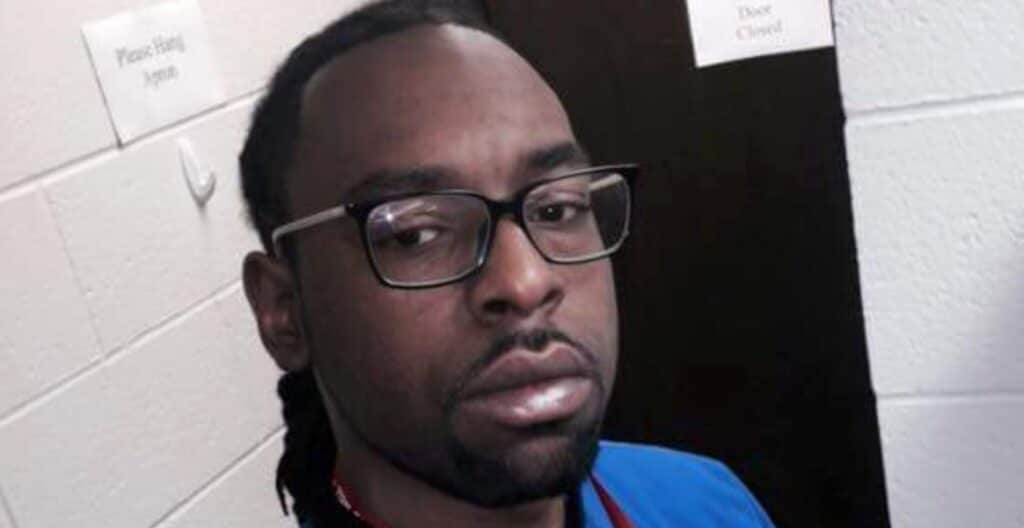Philando Castile’s death 5 years later highlights need for police reform: ‘America, you must act’
“It’s not enough to have this conversation. As my grandmother said, talk is cheap. You have to act,” Ben Crump tells theGrio.
The death of Philando Castile transfixed the nation and increased the volume on the demand for police reform, as he joined a growing list of Black men killed by police. As his final breaths were live-streamed on Facebook, there was even more reason for urgency.
Five years ago Tuesday, Castile, a cherished member of his Minneapolis community, was gunned down in the prime of his life. The 32-year-old cafeteria worker was fatally shot by St. Anthony police officer Jeronimo Yanez, who is Latino, on July 6, 2016, following a routine traffic stop.
(Courtesy of Castile Family)
Squad cam footage showed Yanez pulling over Castile’s car in Falcon Heights, Minn. Reports indicated that the initial stop was because another police officer radioed to Yanez and his partner that he believed the couple to be implicated in a robbery in the area and specified Castile due to his ‘wide-set nose.’
His girlfriend, Diamond Reynolds, and their four-year-old daughter were also in the vehicle.
Yanez asked Castile for his identification and registration, which triggered a fatal sequence of events.
“Sir, I have to tell you, I do have a firearm on me,” Castile, who was licensed to carry in Minnesota, an open-carry state told Yanez.
Yanez began to pull out his service weapon before Castile could finish his remarks.
“OK. Don’t reach for it then,” Yanez commanded.
Yanez repeated the order and then fired seven times into the car at point-blank range. Castile was hit five times.
According to reports, their verbal exchange lasted 40 seconds.
Protestors carry a banner depicting Philando Castile on June 16, 2017 in St Paul, Minnesota. (Photo by Stephen Maturen/Getty Images)
Reynolds began to live-stream the shooting and Castile’s final moments as her daughter cried and pleaded in the backseat.
“Mom, please stop cussing and screaming because I don’t want you to get shooted,” the girl said in footage from the incident.
Castile death was deemed a homicide, provoking outrage and nationwide protests. Controversy also ensued as the NRA — proponents of the 2nd Amendment right to bear arms — failed to advocate on Castile’s behalf.
Yanez claimed that he feared for his life. A jury ultimately believed Yanez, acquitting him of second-degree manslaughter and endangering safety by discharging a firearm in the shooting in 2017.
Castile’s loved ones, including Reynolds and his mother, reached respective settlements of $3.6M from the city of St. Anthony but have continued to urge more be done to prevent further tragedies. Unfortunately, the murder of George Floyd by former police officer Derek Chauvin brought back those very raw memories.
Demonstrators hold up banners bearing the likenesses of Philando Castile and George Floyd during a protest march on July 6, 2020 in St. Anthony, Minnesota. (Photo by Stephen Maturen/Getty Images)
“He had time to change his mind, he stayed on that young man’s neck for eight minutes; my son died in 74 seconds,” Valerie Castile, Philando’s mother, said earlier this year.
“My son was murdered after they stopped him for a broken taillight,” she said. (This is former what Ofc. Yanez told Castile, in fact, he was stopped as a robbery suspect.)
“We’ve been working on the Philando Castle Bill ever since to try to correct some of these wrongs.”
The deaths of Castile and Floyd were both captured on video, drawing another similarity. Despite Chauvin’s conviction, activists and elected officials have remained frustrated that George Floyd Justice in Policing Act, which would enact police reform, is stalled in Congress.
Civil rights attorney Ben Crump exclusively told theGrio‘s White House correspondent April Ryan that America is choosing to ignore the necessary conversation about racial reckoning.
“Even after George Floyd’s video, they are still trying to avoid having the conversation. We have to continue to put the video of George Floyd, the video of Jacob Blake, Anthony McClain, of Joshua Feast, Pamela Turner—all these videos in America’s face until they can’t do anything else but have this conversation,” he said. “But it’s not enough to have this conversation. As my grandmother said, talk is cheap. You have to act.”
Valerie Castile, mother of Philando Castile, speaks during a press conference on November 16, 2016 in Minneapolis, Minnesota. (Photo by Stephen Maturen/Getty Images)
He continued more emphatically: “America, you must act.”
Semhar Solomon, 17, was compelled to take action to protest and march for the lives lost at the hands of the police. She was only 12-years-old when Castile died, and her young life has been shaped by Black people becoming hashtags.
She created a mural of Castile that is on display outside St. Anthony’s City Hall where the police department is located. The teenage activist is determined to keep Castile’s memory and the legacy of his death ever-present.
Semhar Solomon in front of her Philando Castile mural (Semhar Solomon)
“We hadn’t really talked about Philando Castile in St. Anthony as a whole since he was murdered — and even then, that was [only] if you wanted to talk about it,” Semhar recently told Teen Vogue. “The idea of the mural was to make that conversation no longer optional. You’re seeing the face of a Black man in a predominantly white city. That’s going to stir up a conversation, which was the whole goal: to keep Philando Castile’s name and memory alive while also addressing police brutality in Minnesota.”
Have you subscribed to theGrio’s podcast “Dear Culture”? Download our newest episodes now!
TheGrio is now on Apple TV, Amazon Fire, and Roku. Download theGrio today!
The post Philando Castile’s death 5 years later highlights need for police reform: ‘America, you must act’ appeared first on TheGrio.

